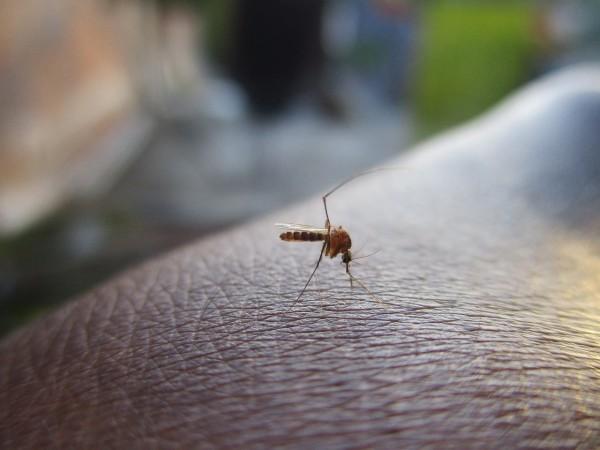
Repeatedly squashing mosquitoes could make them stay away from you in the future, a new study claims.
Researchers have found that mosquitoes can learn to associate a particular odour with an unpleasant sensation similar to being swatted. This ability, therefore, helps the blood-sucking insects avoid that scent the next time. The latest study was published in the journal Current Biology on Thursday.
"Once mosquitoes learned odours in an aversive manner, those odours caused aversive responses on the same order as responses to DEET, which is one of the most effective mosquito repellents," Jeffrey Riffell at the University of Washington, Seattle, said in a statement. "Moreover, mosquitoes remember the trained odours for days."
Researchers knew that mosquitoes don't randomly decide which individuals to bite. While the insects have certain preferences for some people over others, they also swap hosts seasonally. For instance, mosquitoes feed on birds in the summer, and on mammals and birds for the rest of the year.
In an attempt to find out more about how learning might influence mosquitoes' biting preferences, the researchers trained a few of them by pairing the odour of a particular person or animal species with a mechanical shock resembling an actual swat from a person.
The researchers found that the mosquitoes quickly learned the connection between the host odour and the mechanical shock, and used that information to decide the direction they need to fly.
Further analysis revealed that dopamine, a chemical messenger that carries signals between brain cells, also plays an essential role in mosquito learning. However, genetically modified mosquitoes lacking dopamine receptors lost the ability to learn.
The mosquitoes were again tested 24 hours later in a custom 3D-printed holder, allowing them to still fly in place while the researchers were recording the activity of neurons in the olfactory centre of their brain.
The experiments showed that without dopamine, those neurons were less likely to fire, suggesting that mosquitoes became less able to process and learn from odour information.
"By understanding how mosquitoes are making decisions on whom to bite, and how learning influences those behaviours, we can better understand the genes and neuronal bases of the behaviours," Riffell said. "This could lead to more effective tools for mosquito control."















